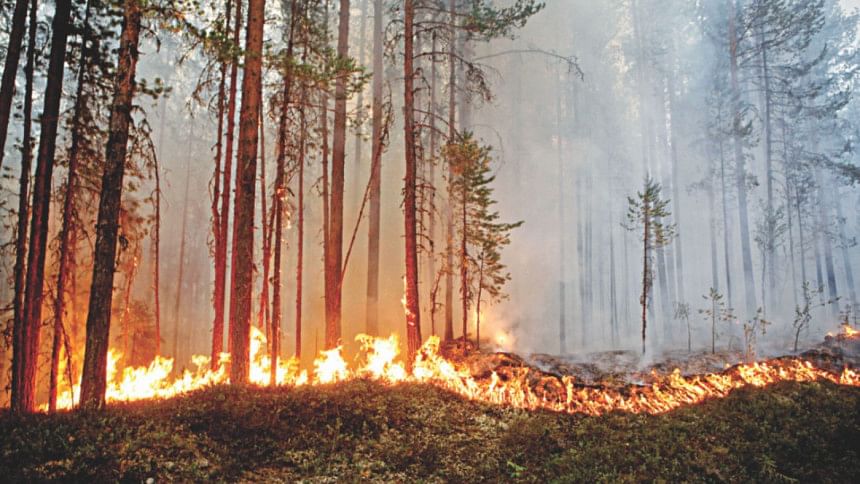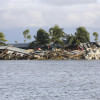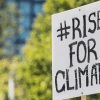Looking at climate change from the lens of international security

A milestone report by the UN Intergovernmental Panel on Climate Change (IPCC) has warned the global community of the expository risks our planet faces, if international stakeholders fail to portray environmental protectionism front and centre in their policy programmes. Four key areas—namely, extreme heat, droughts, floods and poverty levels—require urgent attention from global stakeholders, as scientists suggest that the world has a mere 12 years to limit what they foresee as a climate change calamity.
The statistics are real, credible and daunting. But there remains a question of political commitment when it comes to addressing climate change—a question which often gets sidelined.
The report is comprehensive in its assessment of rising sea levels, increasing temperatures and carbon pollution—yet it also provides policy-based remedies which political leaders have been encouraged to undertake, in order to protect the environment. Therefore, a fundamental question is: Should environmental protection, under the aegis of international security, form a core macroeconomic objective of states? The answer is yes—but given the political divisiveness in relation to key climate accords, such as the Paris Agreement, the question centres around if they will, rather than if they should, treat climate change as a matter of international security.
International security or global security refers to combined efforts of states, international organisations such as the United Nations, and non-state actors such as Amnesty International, and other bodies, in ensuring the sustenance of global peace, survival and safety. Following the end of World War II, a collective consensus has existed across the globe as to the need of promoting, protecting and preserving human security through institutional architectures such as the UN. Yet, the UN Security Council has largely remained silent when it comes to linking global security with climate change—barring Resolutions 2349 and 2408, both of which implied that climate change had contributed to instability in the continent of Africa. The UN Security Council remains focused on other issues, such as international terrorism, nuclear proliferation and transcontinental crimes. While there are several conventions and laws linking actors within the UN Security Council with climate change policies, the inactivity or disinterest of the parties involved to treat climate change as they do other global threats, showcases poor judgement and remains a major concern.
The root cause behind environmental protection not being treated on par with issues such as global terrorism stems from the way national security concerns are construed by states. Individual countries prioritise issues such as inflation, economic growth, employment and inequality. Yet a core macroeconomic objective of the modern state surely must be in the vicinity of environmental protection. Since the publishing of the 1987 Brundtland Report by the Chair of the World Commission on Environment and Development, global organisations and international treaties such as the Kyoto Protocol and the Paris Agreement have indeed pushed the issue of environmental protection. Yet, the mandate of the people across both democratic societies and authoritarian regimes does not come from a promise of protecting the environment. Climate change, in the eyes of the average citizen, does not affect them in the short run at least. It is a simple matter of why an average citizen of Bangladesh, for example, would want a political party to prioritise investments in job creation rather than pour capital in environmental protection schemes. Sadly, political aspirations of getting re-elected on a mandate of greater economic development deter politicians from unrelentingly pursuing environmental protection as a cornerstone of their policies. This is something that has been tacitly pointed out by the IPCC report.
Expecting regular citizens to prioritise environmental protection over other core macroeconomic issues is somewhat naive. Therefore, the state and international regulatory bodies such as the UN Security Council need to take a top-down approach towards environmental protection while engaging in an aggressive campaign to educate people of the problems that the global community is facing, and is expected to face, as a result of state capital not being divested towards tackling climate change.
Otherwise, leaders like US President Donald Trump will continue criticising the need for global environmental protection. According to the American president, the IPCC report is not credible, and the environment is in fact doing "fabulous." And it should not come as a surprise if many in the American electorate hold the same belief as their president. Global superpowers and developing nations have collectively failed to put climate change at the forefront of their policies, and have left the populations in these countries oblivious to the hugely credible threat that is climate change. Some may suggest that Nordic states are doing their bit in leading the fight against climate change—but without concerted efforts by all nation states in tackling climate issues, as has been suggested by the IPCC report, it is impossible to address the threats that scientists have warned about.
Economists at Stanford University and UC Berkeley in 2013 suggested an empirical relation between violence and climate change. Former US presidential candidate Bernie Sanders explicitly stated that climate change is directly related to the spread of terrorism. And they may be right—the fight for resources, the battle for land and access to water, amongst other things, have historically paved the way for violence. Therefore, the IPCC report is a reminder of why it is imperative to take a globalised approach in addressing climate change. Given all the existing empirical evidence, climate change is undoubtedly a threat to international security as it has the capacity—when combined with the effects of migration, terrorism and political violence—to plunge the world into chaos.
Whether it be protecting oceans or ditching fracking (to extract oil or gas), major industrial powers have an obligation to take a leading role when it comes to pushing sustainability and environmental protection to the forefront of national objectives. Only then will climate change policies find a stronghold in the already agreed upon international frameworks and ultimately form a crucial component of international security.
Mir Aftabuddin Ahmed is a recent graduate of economics and international relations at the University of Toronto.
Email: [email protected]










Comments